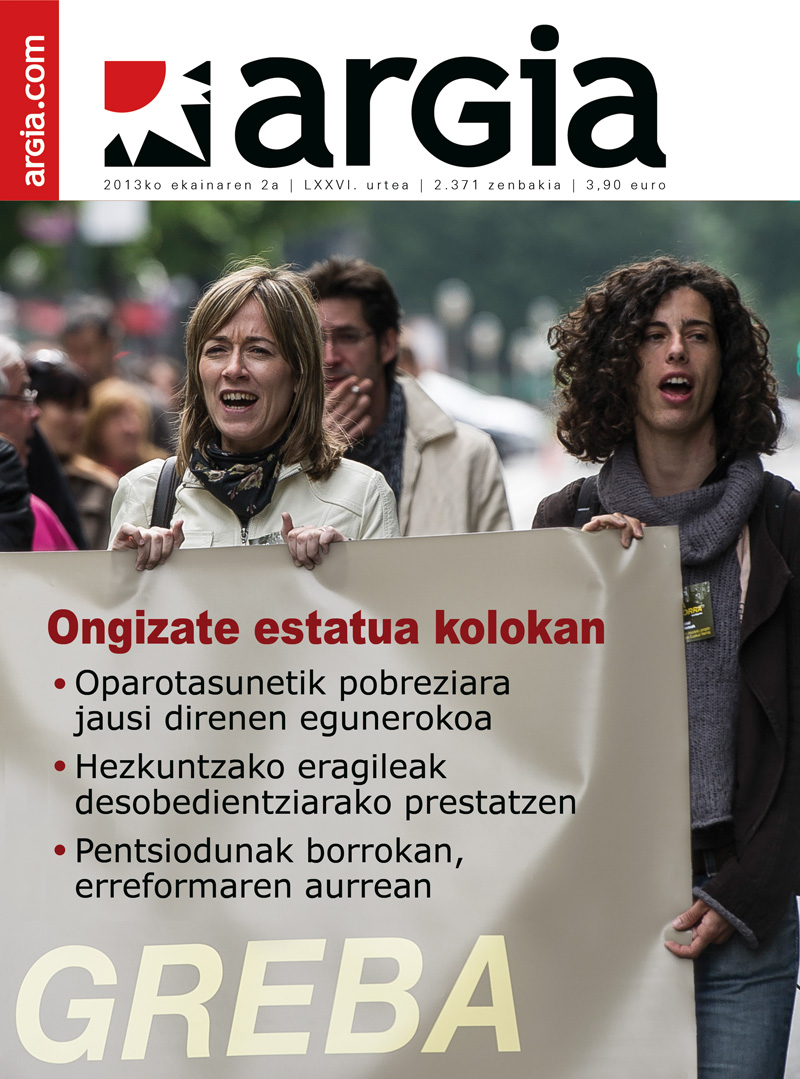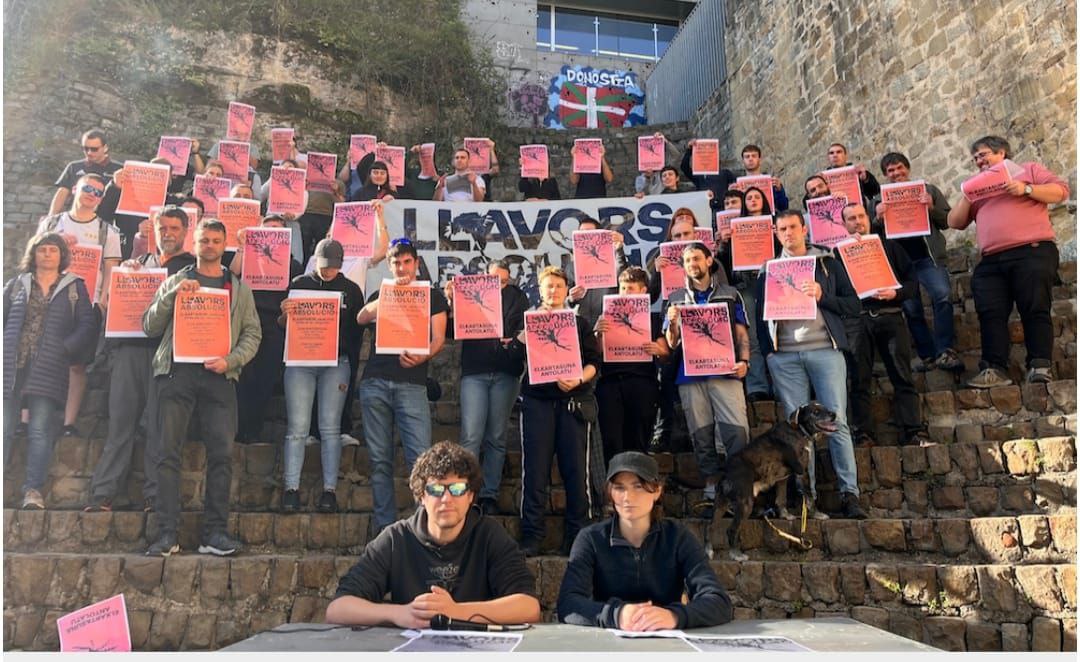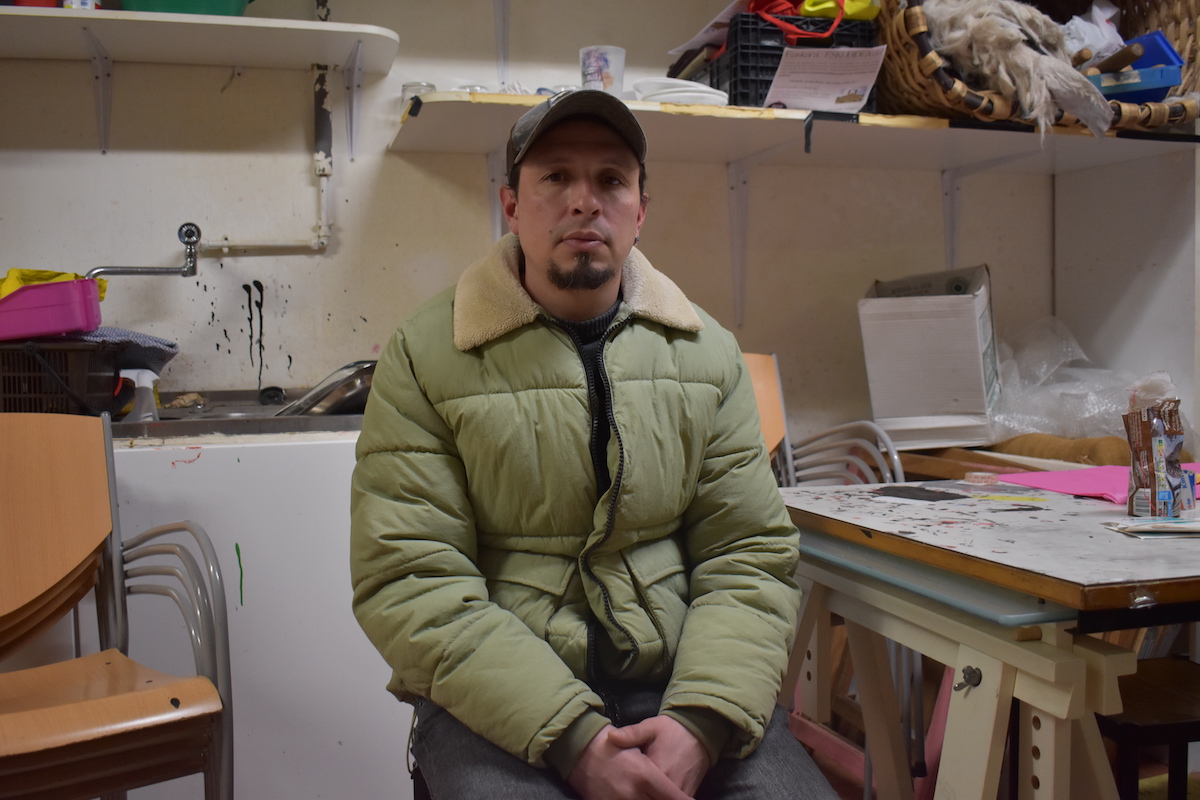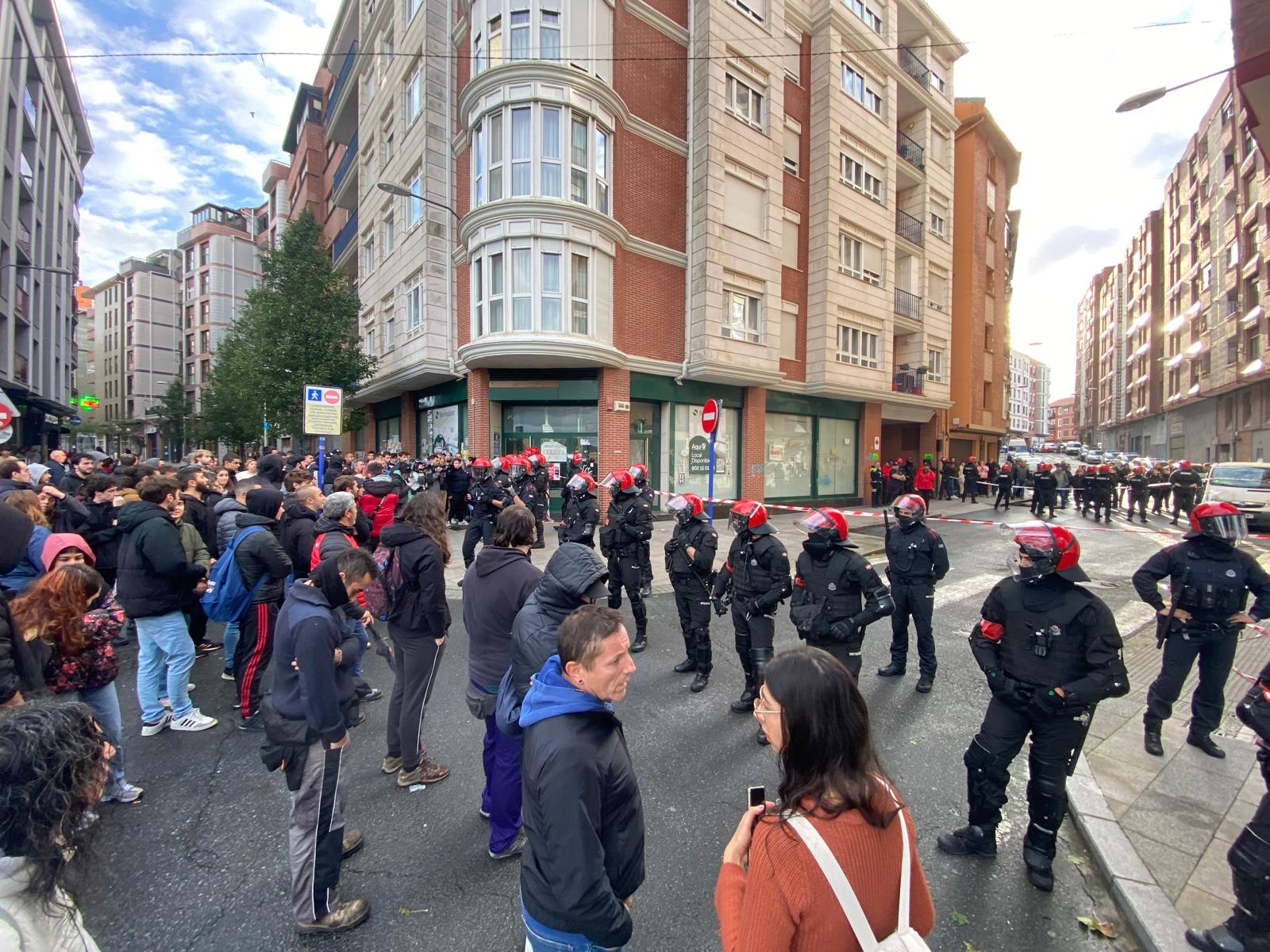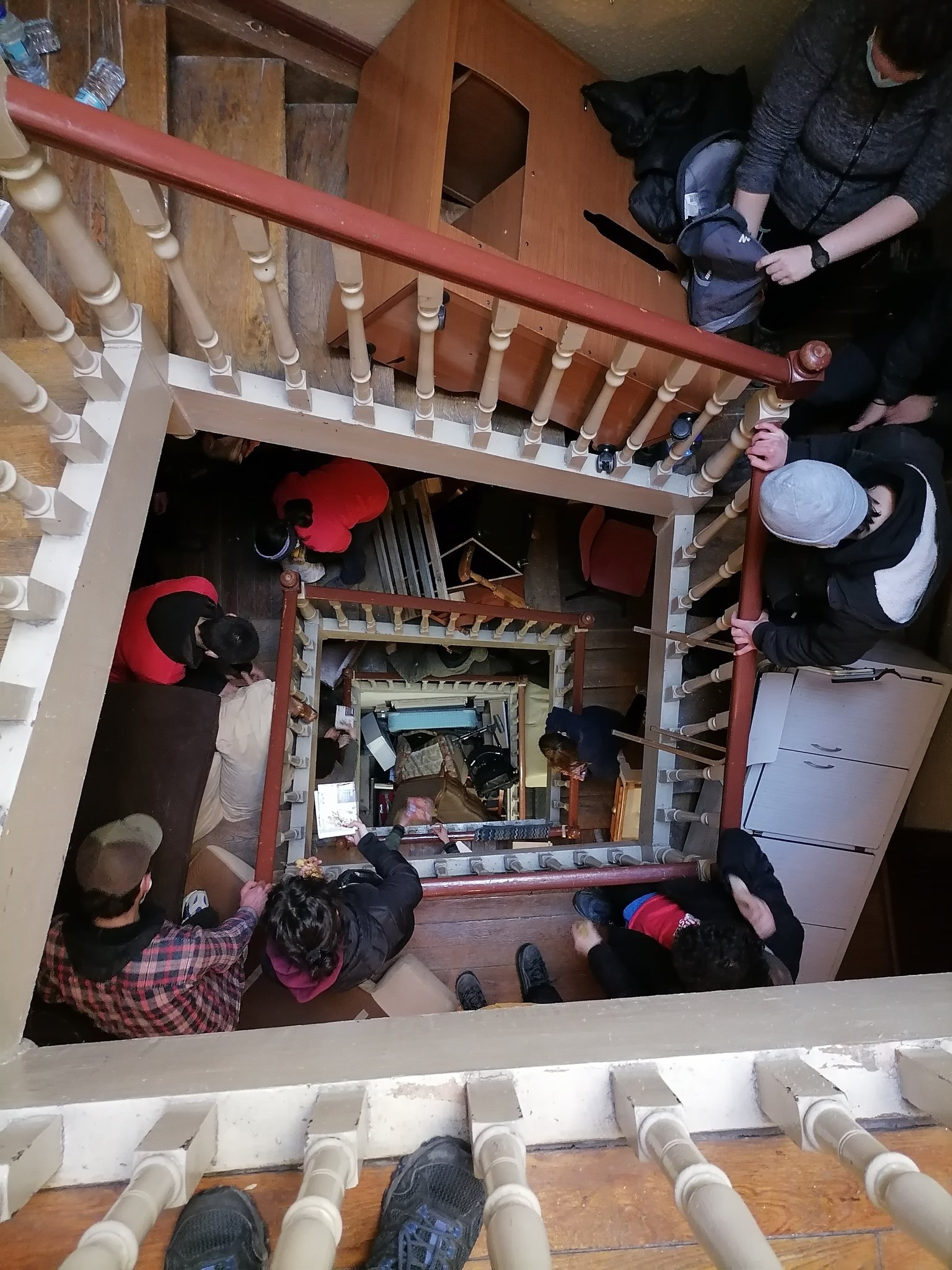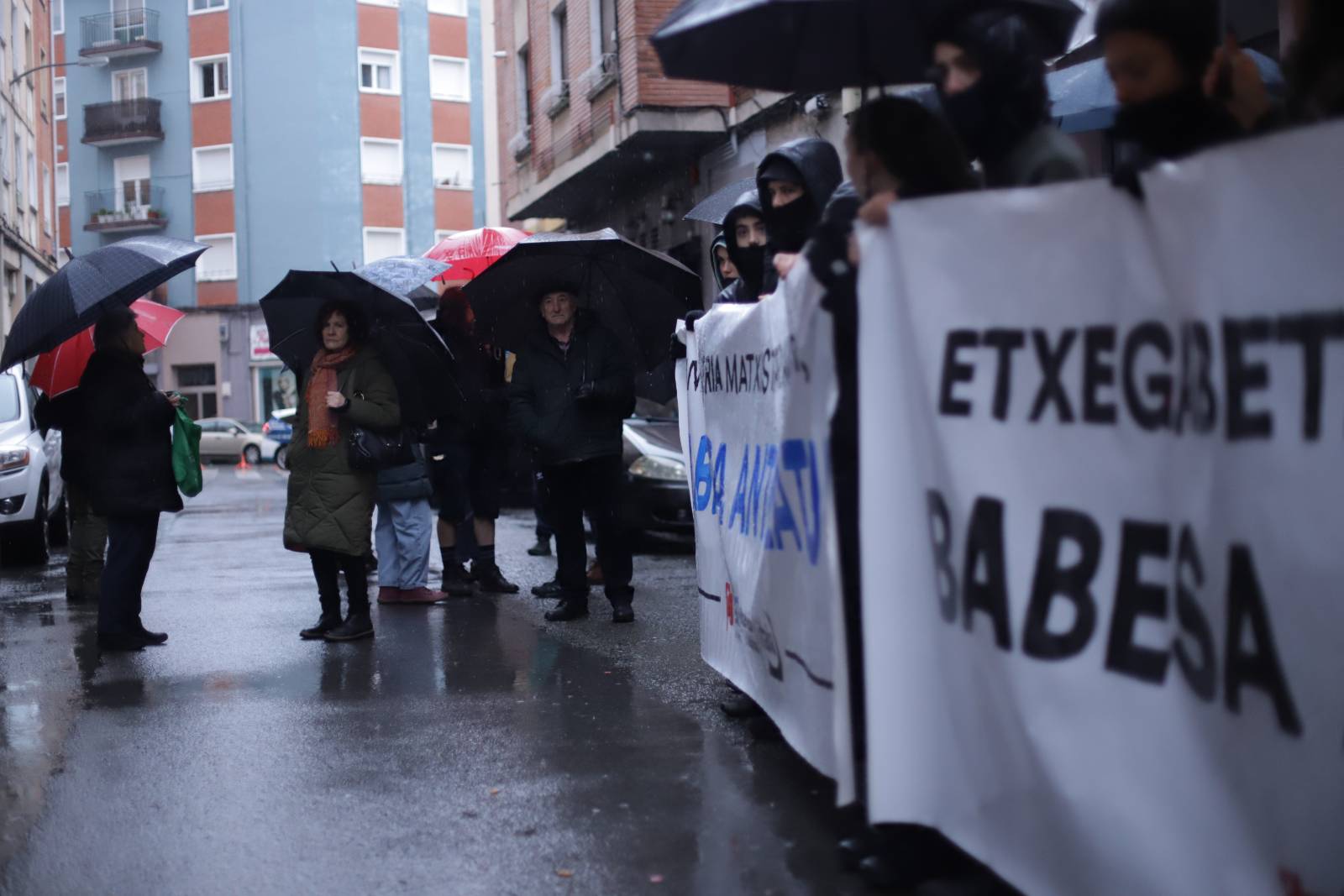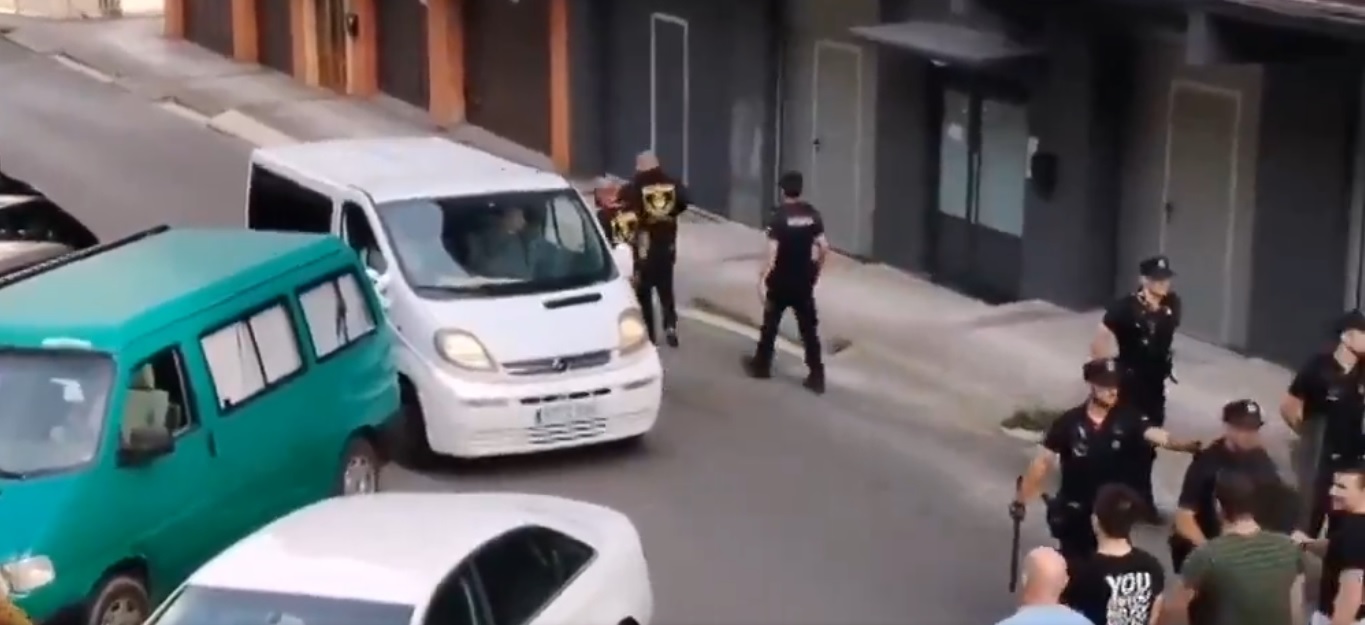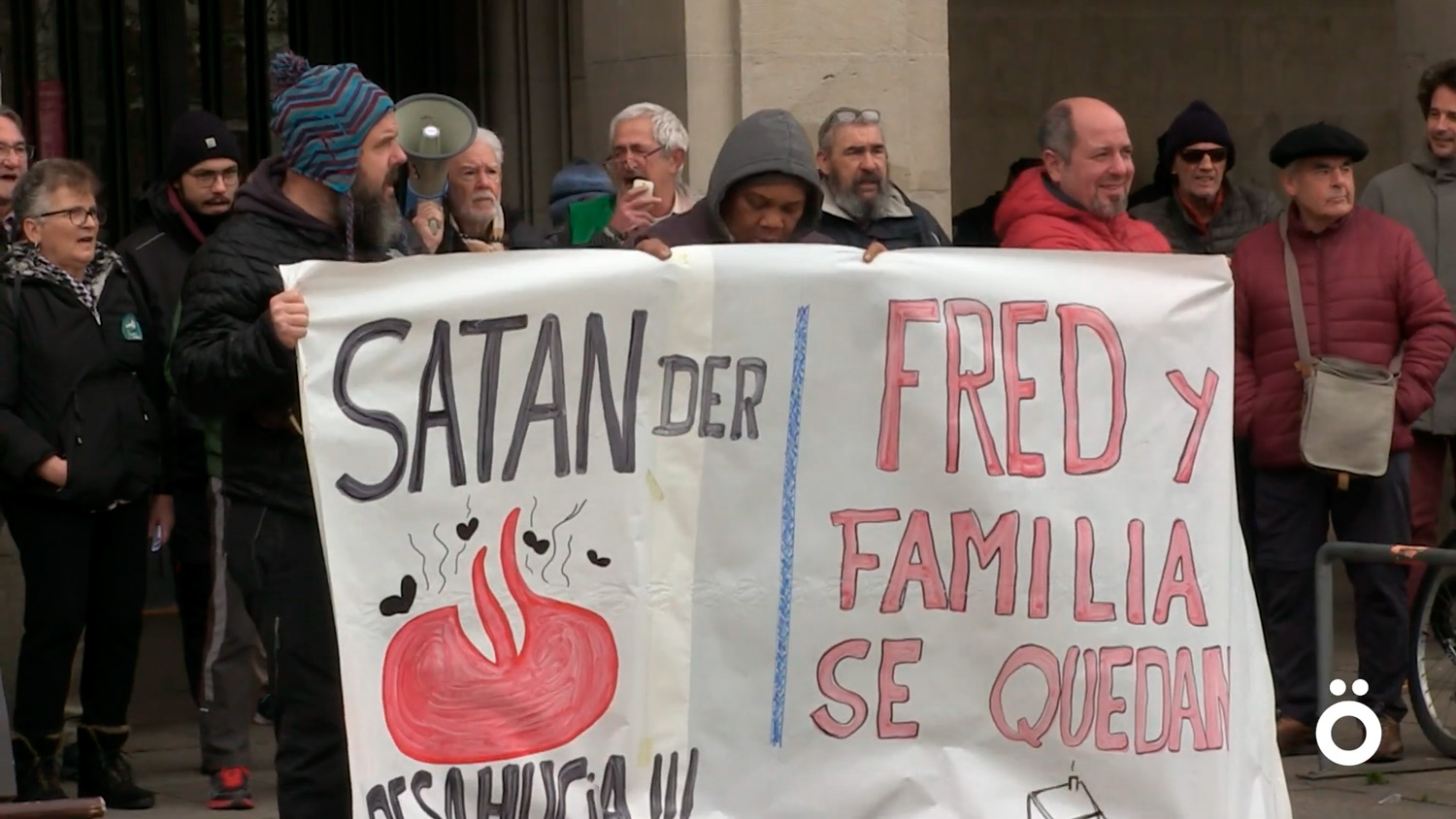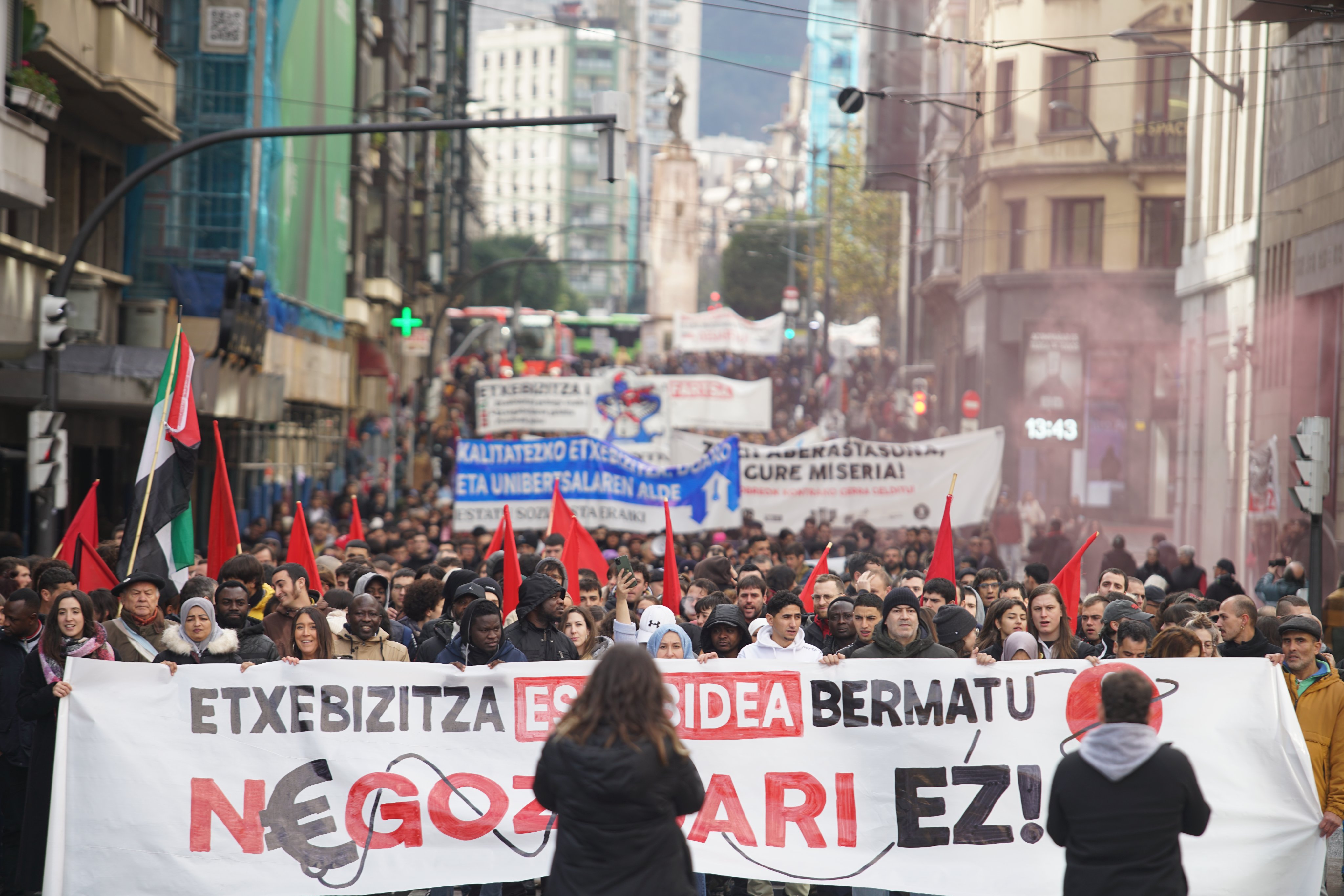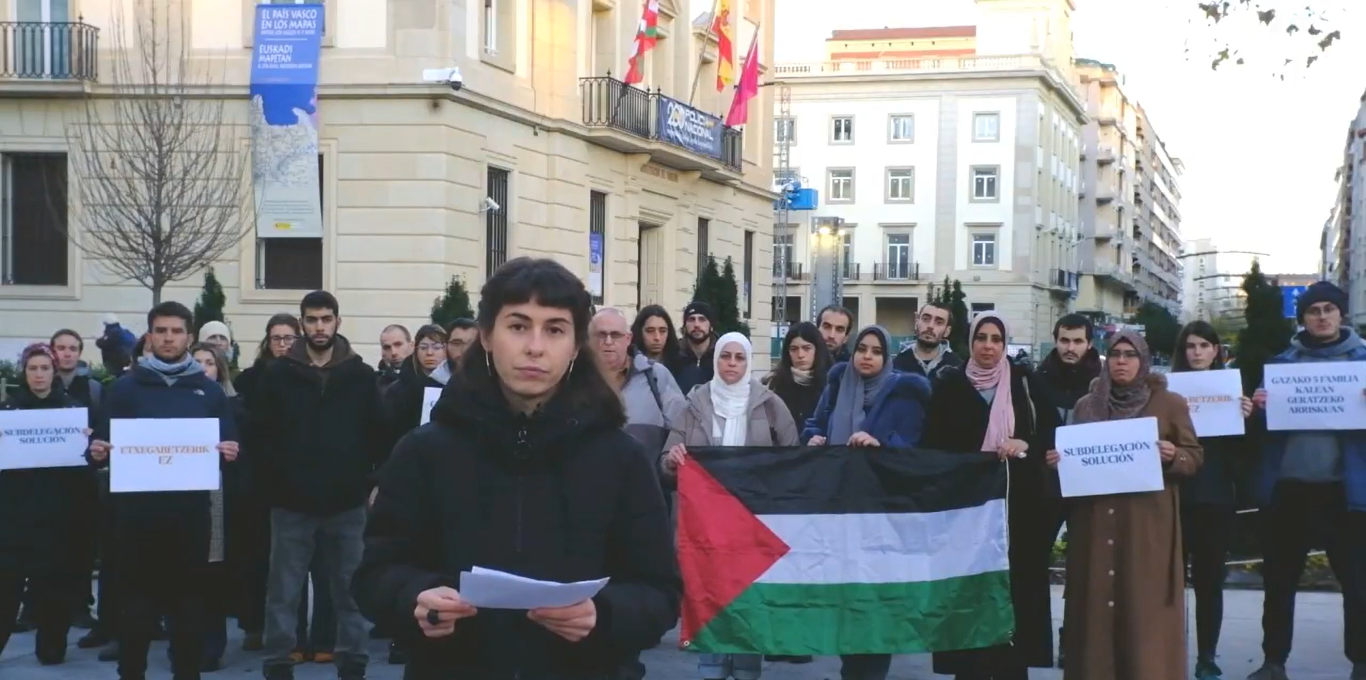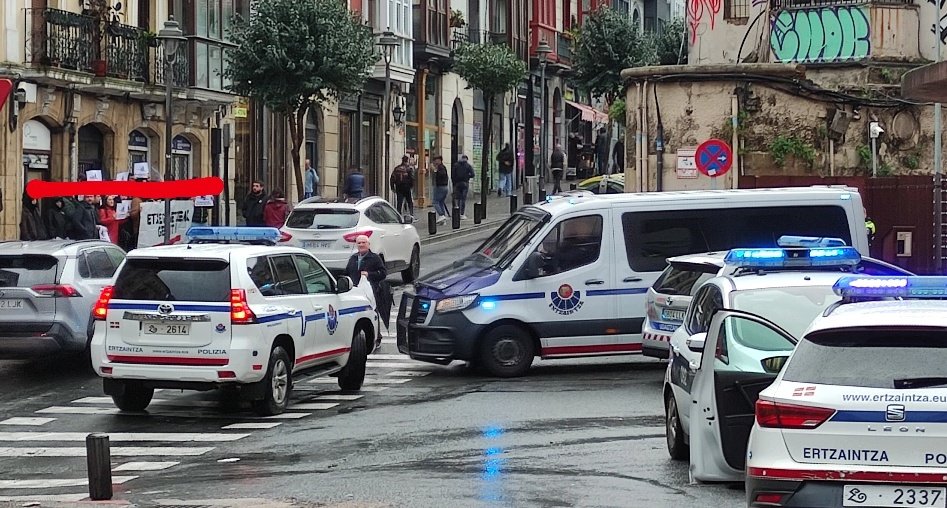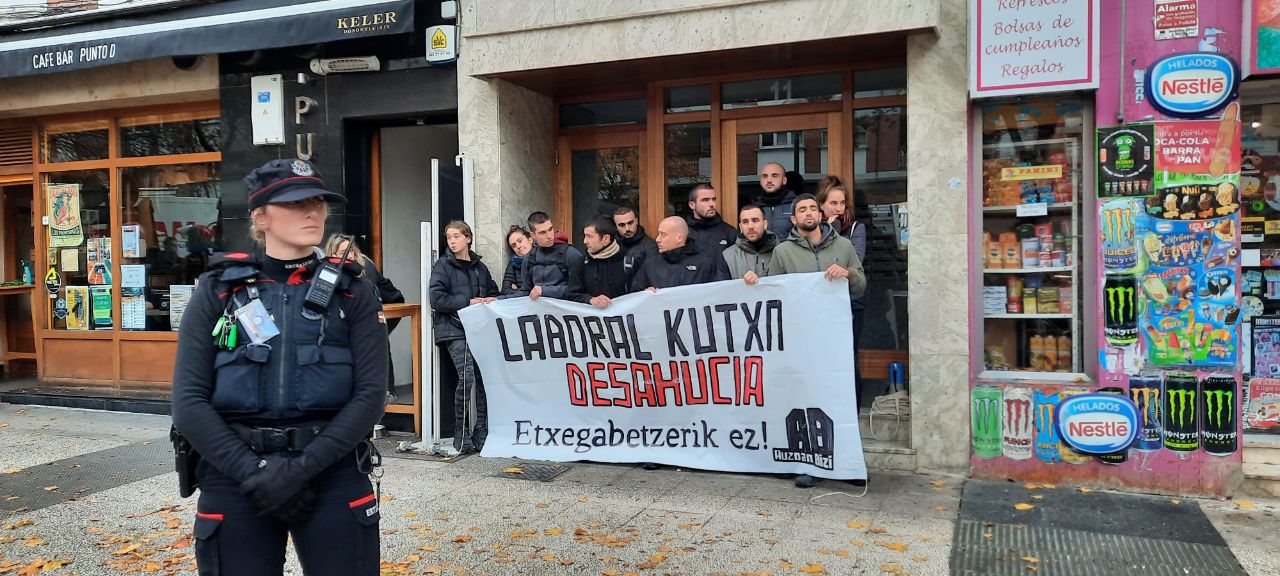Peaceful resistance and democracy
When I started writing this article, I had the title figured out. When I put these headlines, I realized that the one I wrote in the previous issue was very similar. The “Escraches” and democracy. The truth is that it was not my intention to repeat the title, but I found it absolutely consistent to link on this occasion also to the concept of “democracy” what the people express on the streets. Well, once I have warned you, I have left behind to add this little post.
A group of people have spoken in Ondarroa a month ago, as in Donostia-San Sebastián, against compliance with the Supreme Court’s judgments on the imprisonment of young people. A part of society has considered these resolutions unjust and has tried to avoid such arrests by building a “popular wall”.
This society will still have to reflect on what has happened in the past and on its management, as well as on its personal responsibilities. We must also reflect on the response that has been given to the injustices committed by some. But that's another thing, it's linked to this today, but it doesn't have to condition it.
Democracy is not fulfilled only in the institutions or, rather, in the institutions, democracy is by no means its only explanation. Democracy is the participation of citizens, and that can be achieved both in institutions and directly, also in the streets. Democratic participation is not exhausted in the elections and the expression of indignation and indignation must be seen as a democratic exercise. It also seems that in this way people are assuming a special responsibility and questioning the representativeness that is exercised in the institutions: there are the movements May 15 and Escrache.
However, the people’s wall has its peculiarities: on the one hand, it seeks to obstruct the enforcement of a court ruling – which has also taken place in actions against evictions or evictions. On the other hand, and here is the most obvious particularity, it has been the initiative of the Abertzale left. Not any kind of initiative: peaceful – as expressed in English – and absolutely symbolic, because no one believed that the mandate was not fulfilled, but nevertheless many people were expressing their solidarity and indignation. That's called resistance, and of course, it hasn't been invented either here or now, but it has a new meaning for me.
These are statements of the progress made by the Abertzale left, which have not been accepted. They are still on the street, yes, but without trampling on anyone’s rights, without threats, and they wanted to express this.
The question is not whether we share your arguments or how we take those decisions from the courts. What happens is that we all have to have the opportunity to deal with situations that we regard as unfair, without injustices for anyone. I think that is all that has happened with these popular walls.
The test doesn't end here. What should the institutions respond to what happened in Ondarroa and Donostia? For what has been given to me: The Basque Government – the Ertzaintza, therefore – had to comply with the orders of the courts and has done so. Easier and cheaper economically? Yes, of course, but if the management of a democratic society is much more “expensive” and complicated, much more enriching and shared. The “cheap” is a silent, cowardly and frightened society, but that would no longer be a society, but a herd, and I want a living and awake society.
Ez da gauza berria politikari profesionalak gizarteko arazoak estaltzeko ahaleginetan ibiltzea. Azkenaldian Denis Itxaso -EAEko Etxebizitza sailburua- entzun dugu etxegabetzeei garrantzia kenduz eta aditzera emanez gurean bazterreko fenomenoa direla; eta Begoña Alfaro... [+]
Azora putre funts alokairua igo eta mantentze lanak alde batera utzi ditu, Isaac Lagos eta bere familia etxebizitza uztera behartuz. Kaleratzearen aldeko epai bat jaso berri du maizterrak.
Etxera itzuli ahal izan diren arren, joan den azaroan kaleratu zuten Astrabuduko familia berriz ere arriskuan dago. Uribe Kostako Etxebizitza Sindikatuak salatu du mailegu-enpresa berriz ere saiatzen ari dela kanporatzea gauzatzen, oraingoan, desokupazio-enpresa bat... [+]
Azken egunak garrantzi handikoak izan dira Bartzelonan, etxebizitzaren aldeko mugimenduarentzat eta espekulatzaileen aurkako borrokarentzat. Urtarrilaren 28an, polizia-armada batek Raval auzoko Massana Zaharrari [zentro sozial okupatua] eraso egin zion goizaldean, aurrez abisatu... [+]









